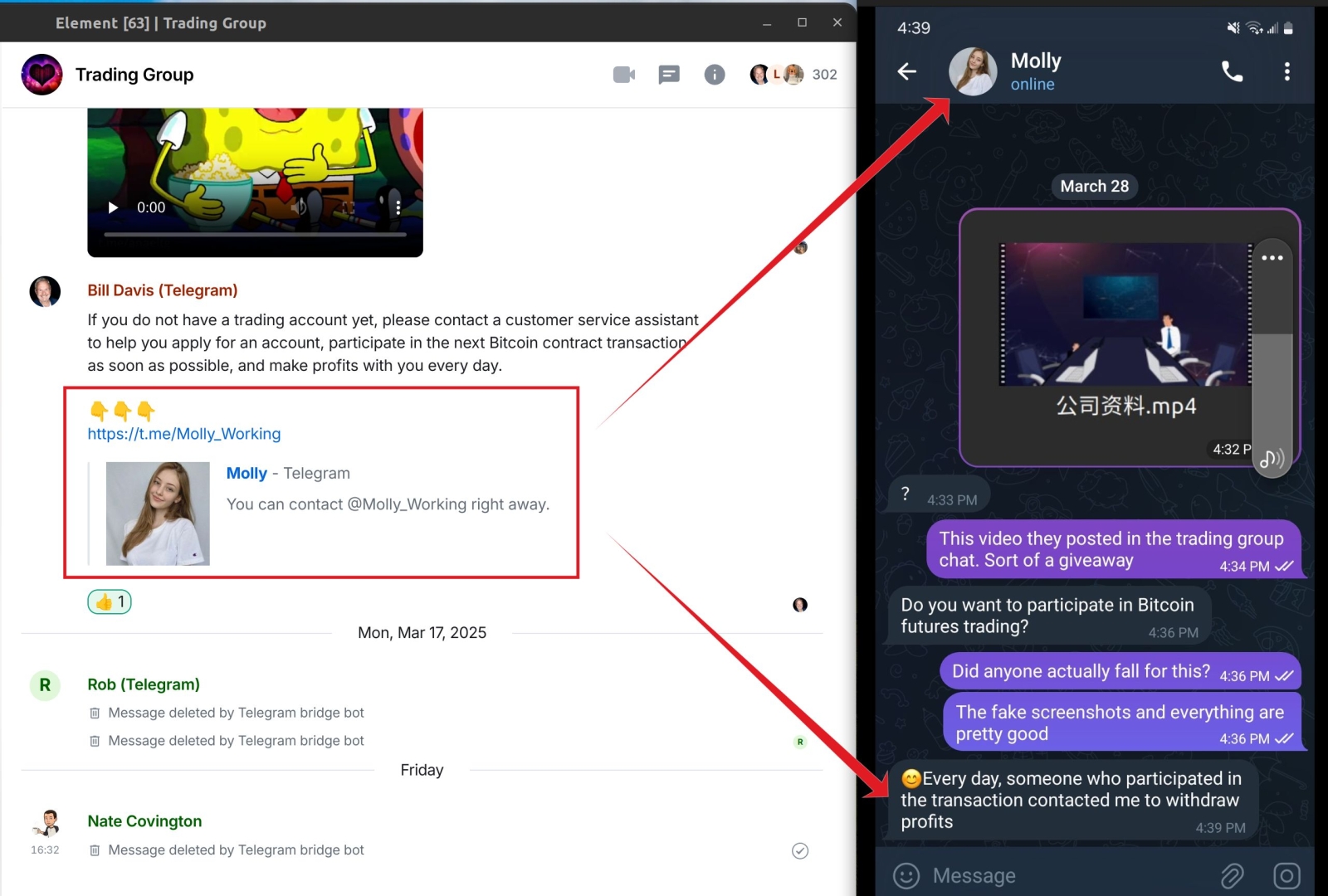However, these so-called "users" were actually scammers using multiple fake profiles. Their goal was to create a convincing, high-energy trading environment to encourage real victims to invest.
https://www.covingtoncreations.com/blog/the-anatomy-of-a-bitcoin-trading-scam-how-fake-telegram-groups-lure-victims#sigProId68d17357ac
The "Customer Service Assistant"
To participate, members were directed to contact a customer service assistant named "Molly." Here’s where the scam escalated. Molly guided users through the registration process on a fraudulent trading platform called AZbit. To start trading, she insisted that users link their accounts to a real cryptocurrency wallet like Coinbase or Cash App—giving the scammers access to their funds.
A Critical Mistake Exposes the Scam
While posing as an interested investor, I noticed that the scammers accidentally posted a video tutorial meant for people starting their own white-label trading scams. This was a massive red flag, as it exposed their entire operation. It’s likely that the scammers didn’t understand English well enough to realize their mistake, allowing me to capture crucial evidence of their fraud.
Calling Out the Scam
When I confronted Molly about the scam, she continued her script, asking if I wanted to participate in Bitcoin futures trading. But when I pressed further, asking if anyone actually fell for their tricks, she finally slipped up. Before deleting all her messages, she admitted with a blushing face emoji: "Every day, someone who participated in the transaction contacted me to withdraw profits." This suggests that they successfully lure in new victims daily.

Stolen Identities and Fake Profiles
To further verify the scam, I performed a reverse image search of Molly’s profile picture. The image was stolen from a Facebook page called "Dating Girls For Friendship" (https://www.facebook.com/people/Dating-Girls-For-Friendship/61555308415309/), proving that the identity was completely fabricated.
How to Protect Yourself From Similar Scams
-
Beware of Fake Communities – Scammers often use bots and fake accounts to create an illusion of activity and success.
-
Never Link Your Real Crypto Wallet – Any platform requiring you to link your Coinbase or Cash App account should be treated with extreme caution.
-
Verify Investment Platforms – Always research any trading platform before using it. In this case, AZbit was not a legitimate platform.
-
Reverse Image Search Suspicious Profiles – Many scammers steal photos from social media to build fake identities.
-
Trust Your Instincts – If an investment opportunity seems too good to be true, it probably is.
Conclusion
This Telegram scam is just one of many targeting crypto investors. By understanding how these frauds operate, we can protect ourselves and others from becoming their next victim. Share this article with friends and family—especially those who may be vulnerable to online scams. Awareness is the best defense against financial fraud.


